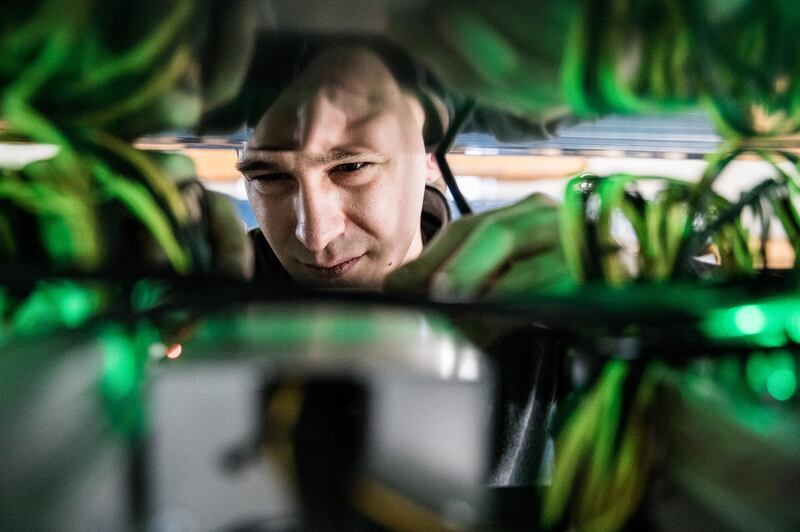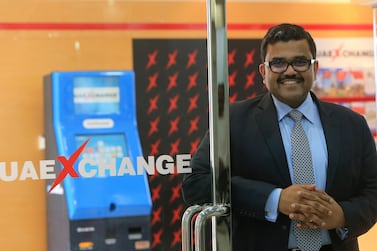Large energy and commodity producers are proving that blockchain technology can be disruptive beyond cryptocurrency exchanges.
Oil companies, in particular, are piloting the use of blockchain for tracking, tracing and trading oil, as well as streamlining construction site operations. The UAE is home to some of the early adopters.
Blockchain operates as a distributed ledger, storing and processing transactions across a network of computers. The technology creates a ledger of transactions that is transparent, immutable and decentralised - it allows for one source of truth and does not need any party to rely on trust. For most companies, trading and supply chains are still managed by paper-based systems or more traditional database management tools, where there might be multiple versions of the same transaction sitting in different systems. Blockchain-based electronic databases should enable faster payment, lower transaction costs and help eliminate fraud.
While blockchains used for cryptocurrency trading are public, most blockchains built for commercial purposes are private, meaning that only companies with permission to see the data can view or edit it. For this group of companies, each has the chance to upload new information and all can see the same information in real-time.
The UAE is host to a number of pilot projects using blockchain to improve industrial operations. The Abu Dhabi Ports subsidiary, Maqta, is working on streamlining the transit of cargo ships in and out of port. To complement its other digital logistics services, Maqta’s Sisal blockchain will be able to upload cargo documentation to the platform to reduce paperwork and increase the visibility of transaction status for the ports’ users. Its blockchain is currently available for freight forwarders and their customers. Abu Dhabi Ports has also partnered with the Port of Antwerp to test how blockchain can be used to exchange and acknowledge cargo documents for international trades between the UAE and Belgium.
Abu Dhabi National Oil Company (Adnoc) has partnered with IBM to reduce logistical inefficiencies with IBM’s Hyperledger product. Adnoc can track its oil products from production to point of sale. The Hyperledger blockchain platform is being used to track the quantities and financial information of bilateral transactions between Adnoc and its partners.
In fact, both projects are not only using blockchain to create immutable databases but they’re also experimenting with using blockchain to automate transactions. These "smart contracts" are the next frontier for blockchain technology. Smart contracts use code to execute automatically when certain requirements are fulfilled - for instance, when an item ships or an e-document is signed. The transaction itself happens on the blockchain and the payout often happens in cryptocurrency, although some architectures can perform some part of the transaction “off-chain”. For energy, manufacturing, construction and transport companies, smart contracts might be used for supply-chain streamlining, ownership and invoice reconciliation, and workflow execution. The process, any automatic trades resulting from it, and the associated data is reflected across the distributed network in real time.
Smart contracts have the potential to significantly reduce logistics costs. If a physical item is purchased, a smart contract can trigger a separate transaction that orders and replaces the inventory. Back-office transaction costs can be as much as 10 per cent of the full cost of procuring goods, but smart contracts allow for a single tracking system to reduce manual verification and reconciliation processes.
Other benefits of smart contracts include removing the potential for fraud and eliminating third parties. In many industries or types of trades there is no unified market. In these cases, brokers play a key role in matching buyers and sellers. Smart contracts can remove the need for a broker by providing a platform for transactions, using code to enforce the contract.
The protocol itself is based on logic, and thus trust between counterparties is unnecessary to ensure the outcome. Smart-contract participants remove the cost of broker fees without exposing themselves to fraud.
Perhaps the most valuable use of blockchain in industry today is its ability to get varied players together to discuss how to streamline supply chains, trading systems and logistics practices. For regions with large commodity-based economies, like the Middle East, and countries like the UAE, smart contracts have great potential, and we expect to see companies here continuing to pursue technologies like blockchain.
Hannah Davinroy, Emerging Technology Analyst, BloombergNEF







